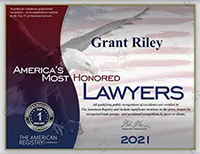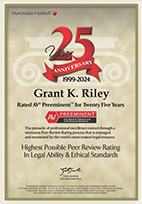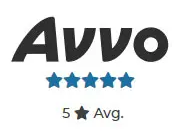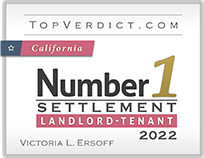Can I sue my landlord if my child has lead poisoning? This question arises when lead poisoning in children causes severe health issues. Lead poisoning in children can cause mental health and physical harm leading to long-term problems. If your landlord has not provided proper documentation regarding lead in your home, then you may be entitled to sue your landlord if your child has lead poisoning.
The attorneys at Riley | Ersoff LLP have decades of experience handling catastrophic personal injury cases. We have prosecuted more lead poisoning cases than any other firm in California. Our dedicated attorneys and staff are available to answer your questions, provide a free consultation and help get you the compensation you deserve.
How Children are Exposed to Lead
Exposure to and ingestion of lead-based paint can cause severe neurological and physiological harm to young children. Unfortunately, deteriorated lead-based paint in older rental homes and apartments remains a huge problem in Los Angeles, San Francisco, Oakland and other cities and towns in California.
Deteriorated lead-based paint in homes built before 1978 is the primary cause of childhood poisoning. Anywhere from 50-87% of homes built before 1978 contain lead-based paint.
Lead-based paint can deteriorate through weather, age, friction, and impact.
Old, wood-painted windows and doors that are subject to friction and impact from repeated use can wear down and generate dangerous microscopic particles of lead dust that your child can ingest through normal hand-to-mouth behavior.
Lead-based paint can become exposed and form dangerous lead dust particles over time – even if covered in “safe” paint that does not contain lead.
Lead can also be found in the water. And you might ask: Can i sue my landlord for lead in water?
Yes, you can sue your landlord if lead in the water has caused lead poisoning. If your landlord failed to provide proper documentation about lead presence and your child has suffered health issues due to lead exposure, you may be entitled to sue.
If your child was exposed to lead, you should speak to your child’s pediatrician immediately. Your child’s doctor can check your child’s blood lead level with a simple capillary or venous blood test.
Suppose your child has an elevated blood lead level, and it appears that it was caused by exposure to deteriorated lead-based paint in your rental home or apartment. In that case, you may be entitled to significant financial compensation.
Lead Poisoning Causes Serious Long-term Mental health and Physical Harm to Young Children
Exposure to deteriorated lead-based paint, lead dust, lead in soil or water can lead to severe and permanent health problems in young children. Blood levels as low as 3 mcg/dL can cause neurological harm.
Although rare, blood levels as high as 75 mcg/dL can cause serious convulsions and death. Children who suffer lead poisoning can suffer from neurological and behavioral problems including:
- Loss of IQ
- Attention Deficit Disorder
- Attention Deficit and Hyperactivity Disorder
- Loss of Executive Function
- Borderline Intellectual Functioning
- Oppositional Defiant Disorders
- Juvenile Delinquency and Aggression
Children who are exposed to and ingest deteriorated lead-based paint and lead dust can also suffer from long-term physiological problems including:
- Cardiac Failure
- Renal Failure
- Early Onset Alzheimers
- Hearing Loss
- Lowered Sperm Production
- Miscarriage or Premature Birth in Pregnant Women.
Required Landlord Disclosures
In 1996, Congress passed the Residential Lead-Based Paint Hazard Reduction Act. The purpose of the Act is to protect children from the scourge of deteriorated lead-based paint in rental housing. Under the Act, landlords must provide certain information to tenants regarding lead paint in any rental home or apartment built prior to 1978.
Before the time the tenant agrees to lease an apartment or rental home, the tenant’s landlord (or the landlord’s real estate agent) must:
- Notify the prospective tenant of any known lead-based paint in the rental home or apartment building, including any reports or records pertaining to the presence of lead-based paint paint;
- Provide their prospective tenant with a copy of the EPA pamphlet Protect Your Family from Lead in Your Home; and
- Provide a “Lead Warning Statement” as part of the lease that warns the tenant of the dangers of lead-based paint and confirms that the landlord has provided the tenant with all necessary notifications of lead-based paint in the rental unit, house, or building.
If your landlord knowingly violates the Act, they are liable for three (3) times your actual damages. The lead poisoning attorneys at Riley | Ersoff LLP can help you understand and prosecute your lead poisoning claim.
What Are My Damages and My Child’s Damages If He or She Has Lead Poisoning?
If your child was lead-poisoned by a residential landlord that knew or should have known about deteriorated lead-based paint at his or her rental property your damages and your child’s damages can be substantial.
These damages include future pain and suffering, loss of income, emotional distress, long-term medical care and long-term medical monitoring. Although every case is different, damages for childhood lead poisoning can be in excess of $10,000,000.
Contact a Qualified Lead-Poisoning Attorney Today
If you fear you or your loved one has suffered lead poisoning, you should first seek medical attention. Then, you should contact a qualified attorney.
If you or your child has suffered lead poisoning because your landlord failed to follow the law, you deserve financial compensation. The attorneys and staff at Riley | Ersoff LLP can help.
We are aggressive and dogged and demand justice for our clients. We offer free consultations, and we will help you determine if you have a valid claim. Call our offices at (888) 658-9695 or fill out our online form today.
The post Can I Sue My Landlord if My Child Has Lead Poisoning? appeared first on Riley | Ersoff LLP.
















